
I’ve created art for card games for nine years and I want to show you how to make work for a card art portfolio.
Card art has unique challenges mostly to do with just how small the images appear. The art on many cards is just 2x1.5 inches! Most details are lost at that scale, while compositions easily become muddy and confused. A painting that looks great at a larger size can lose all of its impact when reduced to just a couple inches.
With card art, the key thing to bear in mind is to start with strong, clear shapes and to maintain those as you finish the piece. If you begin with uncertain shapes or values, you’re going to end up with a mess.
As you finish your work, you’ll most likely need to use a lot of high-quality reference. Choosing not to use reference is choosing to make worse art. Using reference is not “cheating” – it’s just the way illustration should be done. Most of the top illustrators use a ton of reference for their paintings, even if they don’t talk about it. So get rid of any silly notions of only working from imagination, and start using more reference to make better work.
1 Read the brief! Then read it again!
Card art has a purpose. It has to convey the appearance of a character, a specific action or object, or a location within the universe of the game’s setting (and sometimes all of these things at the same time). Make sure you understand what you’re being asked to paint.
Title: Princess of the Sun
Size: 444x300mm (to be printed at 44x30mm)
Due date: November 16
Art Description: A beautiful princess, surveying her domains. Wearing a long, flowing dress or gown of some sort. Her connection to the world around her is a vital part of her power in the game.
This story is from the {{IssueName}} edition of {{MagazineName}}.
Start your 7-day Magzter GOLD free trial to access thousands of curated premium stories, and 9,000+ magazines and newspapers.
Already a subscriber ? Sign In
This story is from the {{IssueName}} edition of {{MagazineName}}.
Start your 7-day Magzter GOLD free trial to access thousands of curated premium stories, and 9,000+ magazines and newspapers.
Already a subscriber? Sign In
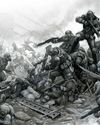
PAINT EPIC BATTLES IN TRADITIONAL INK
Warhammer illustrator THOMAS ELLIOTT shows you how to create an epic science fiction fight scene with this step-by-step guide
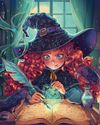
CONJURE MAGIC ILLUSTRATIONS
Daria Anako demonstrates her process for creating a whimsical piece of art with some spellbinding touches
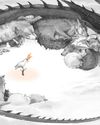
First Impressions
We discover the early influences that inspired the artist
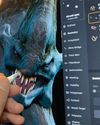
ZBrush for iPad
GAME CHANGER The desktop version of popular 3D sculpting software ZBrush has been redesigned for iPad - and it's brilliant

BenQ GW2786TC
GET AN EYEFUL Don't scrimp out on your health with a monitor that's kind on the eyes and good for creative tasks
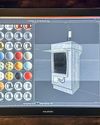
Huion Kamvas Pro 19
TABLET WARS An attractive pen display does an excellent job of balancing price and performance as it sets out to challenge its rivals in the mobile marketplace
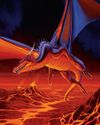
DRAGON OFORCEC
Legendary D&D artist Larry Elmore explains the keys to crafting timeless fantasy art.
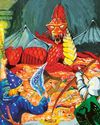
DUNGEON MASTERS
ImagineFX marks the milestone 50th anniversary of the launch of Dungeons & Dragons with a look at its rich tradition of illustration
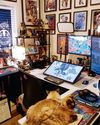
Erik Ly
Gamer's haven Why the artist enjoys a maximalist aesthetic more than the minimalist approach.
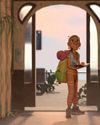
2D meets 3D: How the workflows are merging
Interdimensional As VFX and animation evolve and tools become more accessible, Tanya Combrinck asks whether the separation between the mediums is reducing